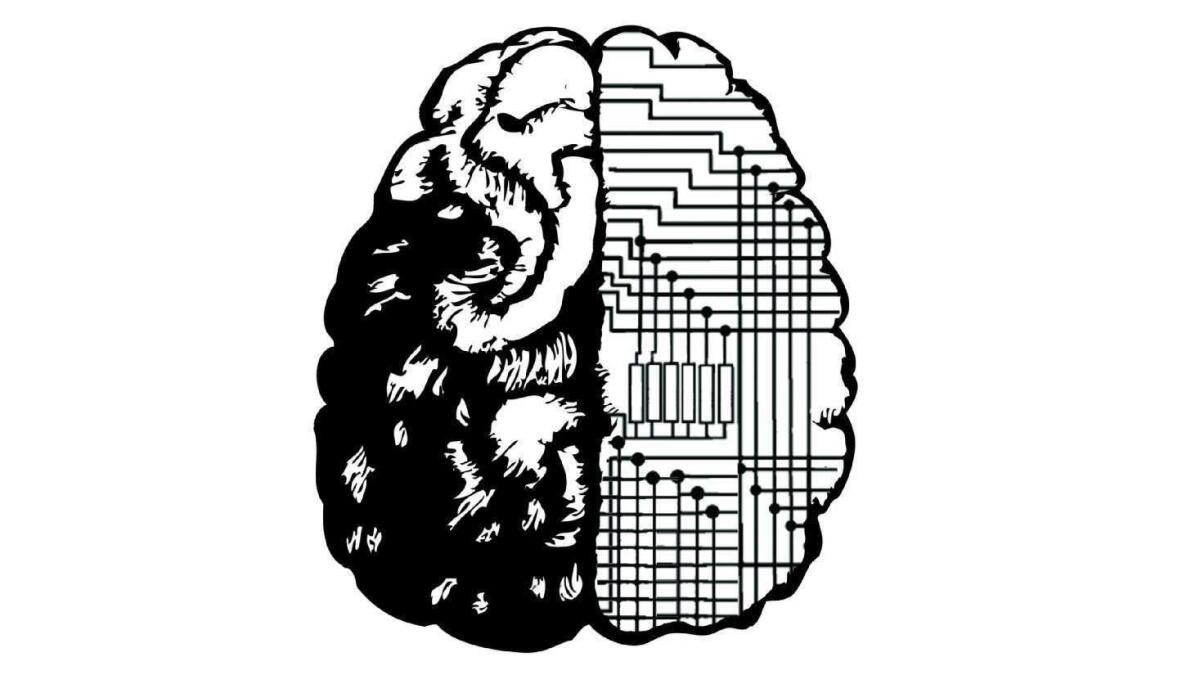Geneticists uncover a key clue to schizophrenia

Until now, scientists have been unable to link schizophrenia to specific genes or genetic variations.
Scientists say they have broken new ground in the study of schizophrenia, uncovering a potentially powerful genetic contributor to the mental disorder and helping to explain why its symptoms of confused and delusional thinking most often reach a crisis state as a person nears the cusp of adulthood.
Genes associated with the function of the immune system have long been suspected in schizophrenia, but scientists have been at a loss to understand the nature of the link. In a study published Wednesday in the journal Nature, researchers at the Broad Institute of MIT and Harvard show that immune-related genetic variations linked to schizophrenia play a key role in prompting the “pruning” of brain connections in late adolescence.
NEWSLETTER: Get essential California headlines delivered daily >>
That pruning of synapses — the connections among brain cells that proliferate with wild abandon throughout infancy and childhood — appears to play a key role in humans’ cognitive transition to adulthood. If that process were altered by a slight change in a gene, the scientists surmised, that transition may be disrupted, with disastrous results.
The study offers the first clear evidence of a neurobiological basis for a disease that places lifelong burdens on patients and their families. In addition to periodic episodes of delusional thinking, schizophrenics have difficulties with working memory, planning and executive function.
Scientists have long known that schizophrenia is a heritable disorder, as it tends to run powerfully through families. Recent advances in genetic research had turned up 108 regions along the genome where variations appeared to increase the risk of developing the disease.
But until now, scientists have been unable to link schizophrenia to specific genes or genetic variations, or show how the function of a specific gene or gene variant might lead to the brain and behavior abnormalities observed in schizophrenics.
In a study hailed as a significant step in the search for schizophrenia’s roots, geneticists and neurobiologists zeroed in on a genetic region that plays a key role in the immune system, but is also linked to the mental disorder.
That region, called the Major Histocompatibility Complex (MHC), is diabolically sprawling and complex. Across its span lie genes that govern — in part, at least — the immune system’s ability to recognize and respond to disease and threats from foreign bodies. It also contains DNA variants that appear with regularity in schizophrenics.
After conducting genetic tests on nearly 65,000 people, the scientists followed a trail of clues to a group of genes in the MHC called C4 genes. They found that people with certain variants of C4 genes had unusually high odds of developing schizophrenia, even in the absence of other genetic risks.
But why?
To answer that question, the researchers genetically engineered mice that had the kinds of deficiencies in C4 that, in humans, is linked to schizophrenia.
They found that in mice with normal C4 genes, the genetic program they contained was particularly activated around late adolescence, initiating an editing process on the riot of synapses developed during infancy and childhood.
In mice genetically engineered to have the C4 deficiency, however, they found that the pruning process was markedly overactive. It removed synapses so ruthlessly that neural connections were likely to be missing throughout the brain.
“Since schizophrenia was first described over a century ago, its underlying biology has been a black box, in part because it has been virtually impossible to model the disorder in cells or animals,” said geneticist Steven McCarroll of the Broad Institute and Harvard Medical School, the paper’s senior author. “The human genome is providing a powerful new way in to this disease. Understanding these genetic effects on risk is a way of prying open that block box, peering inside and starting to see actual biological mechanisms.”
The team’s finding may refine the search for better treatments for schizophrenia. The disorder is currently treated with lifelong antipsychotic medication, which can tame the delusions that come with the disease but do little to blunt schizophrenia’s subtler cognitive impairments. They also come with severe side effects, such as extreme weight gain, metabolic disorders, and the development of uncontrollable facial tics and body movements.
With a better understanding of the molecular processes set in motion by errant genes, scientists can hope to develop more precise ways to treat, and perhaps even prevent, the brain changes seen in schizophrenia.
Emory University geneticist Stephen Warren called the new study “transformational ... on many levels.”
By showing a link between C4 and synaptic pruning, the new data builds on theories that the over-editing of brain connections in late adolescence might be “a contributing cause” of schizophrenia, he said. That “could, for the first time, establish a molecular explanation for the peculiar age-of-onset aspects of schizophrenia.”
At the same time, Warren added, the disease remains shrouded in mystery.
“Clearly the C4 explanation does not fully explain schizophrenia risk, and it is also clear that genetic variation alone is insufficient to solely cause schizophrenia,” he said.
Follow me on Twitter @LATMelissaHealy and “like” Los Angeles Times Science & Health on Facebook.
ALSO
What sweat can tell you about your health
What’s causing the rise in STDs in L.A. County and how can technology help?
California has so far gotten a break from the flu, and it might be helped by the weather







